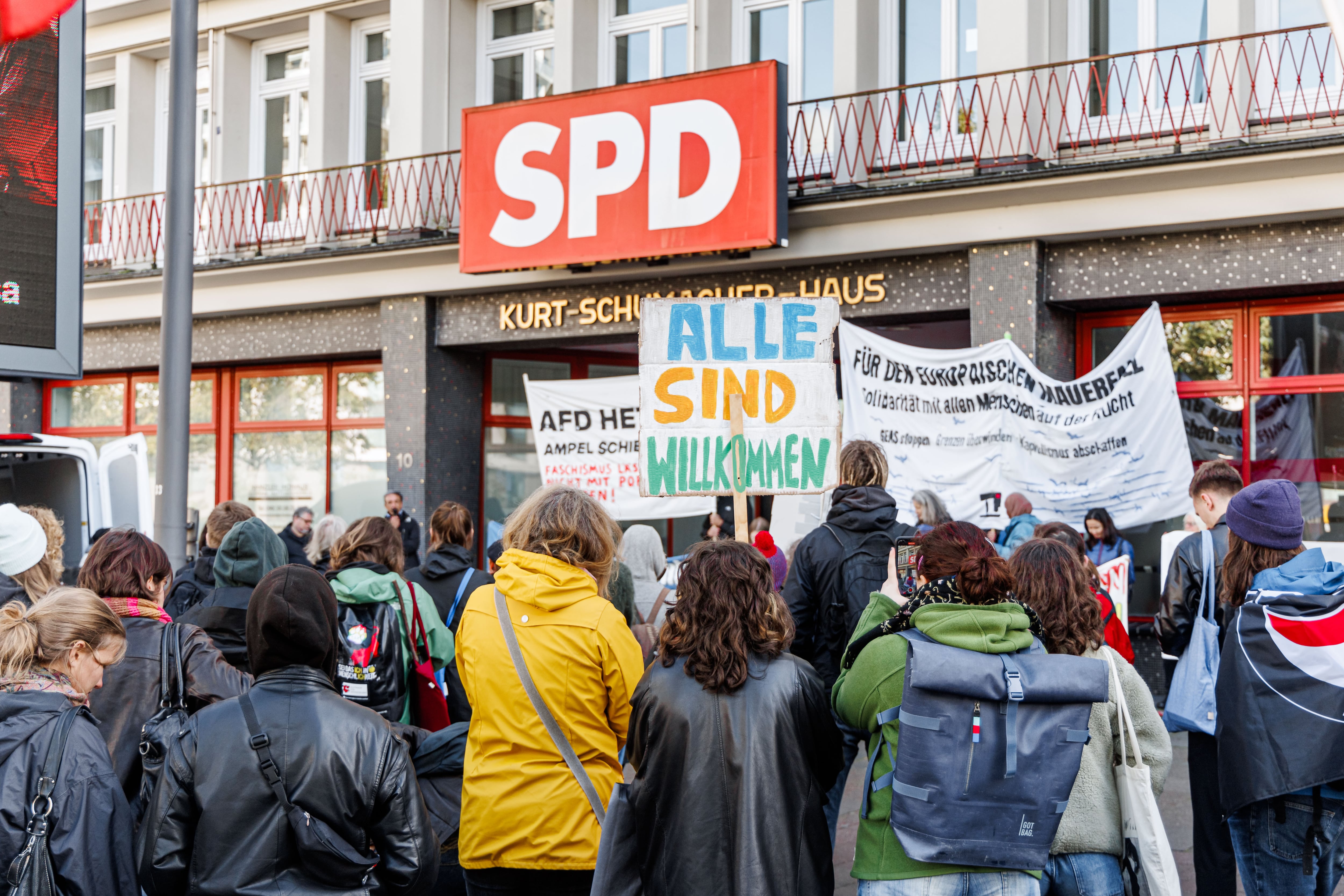
While the controversy over the migrant deportations and regarding the possibility of opening centers outside the community territory, the deputies of the German Bundestag approved this Friday the so-called security package, which, among other measures, toughens the rules for refugees and legislation on weapons.
In the future, asylum seekers who enter the EU through a country other than Germany will be excluded from state benefits “provided it is legally and actually possible for them to leave the country”, that is, if the responsible country, under the Dublin Conventionhas agreed to readmit them. Exceptions will be made if those affected are children. To this end, a special working group will ensure that refugees who are already registered in another EU country can be transferred to that State. With this, Germany seeks to reduce migratory pressure and appease public opinion. The Minister of the Interior, the social democrat Nancy Faesercalled the package “the appropriate response” to threats such as Islamism, anti-Semitism, right-wing and left-wing extremism, and violent crime.
The Government formed by social democrats, greens and liberals launched the plan after the Islamist knife attack in Solingen last August, which left three dead. The confessed perpetrator is a Syrian refugee who was due to have been deported to Bulgaria in 2023. This led the opposition to put pressure on the chancellor, Olaf Scholzto adopt measures to increase deportations and against illegal migration. However, the bill to improve internal security and the asylum system, agreed this Friday with 361 votes in favor, 290 against and nine abstentions, is seen by a large part of the opposition as insufficient.
The president of the Christian Democratic parliamentary group (CDU/CSU), Thorsten Frei, described it as a package “full of holes, like Swiss cheese.” The leader of the CDU, Friedrich Merz, recalled that “refoulement at Germany’s external borders is not yet possible” and demanded that the controls be permanent and exhaustive.
Another of the approved measures is to withdraw refugee status if the trip to the country of origin is not absolutely necessary. This does not affect refugees from Ukraine. “Those who really run the risk of being persecuted there do not travel to their country of origin,” criticized Merz. “Anyone who can travel there must lose their protected status,” adding that the reason for the trip is “irrelevant.” He sees it the same way the far-right party Alternative for Germany (AfD)which has been criticizing for some time, for example, that there are Ukrainian refugees who return temporarily while receiving state aid.
3.5 million refugees
Germany reached a new record of 3.48 million refugees at the end of the first half of the year, according to German government figures. Cities like Berlin admit they are overwhelmed. The former Tegel airport has become one of the largest centers for asylum seekers in the country, with around 5,500 people and capacity for 7,000. Its mayor, Kai Wegnerassumes that it will have to be expanded. “When I say that we have reached the limit of our capacity in some areas, I would also be talking about being overwhelmed. And it’s not just about Berlin,” the conservative politician declared this week before the foreign press.
But human rights organizations such as Pro Asyl consider that excluding refugees from social assistance is not the solution. In his opinion, this clearly violates the Constitution and “will lead to destitution and helplessness among those seeking protection.” “This exclusion from benefits crosses a red line,” Sarah Lincoln, of the Society for Civil Liberties, told the German network ARD. “Refugees will no longer receive money, medical care, and they will not be allowed to work here,” he said. “In short, they expose themselves to total destitution.”
Scholz also had to face criticism within his ranks against the legislative package, which includes an absolute ban on knives at public festivals and other public events, as well as a future ban on knives on buses and trains. The chancellor had to call the meeting of his parliamentary group to order to achieve the necessary majority and the possibility was even leaked that he had linked the vote with his permanence in office, something later denied by the General Secretary of the Social Democratic Party, Matthias Miersch.
A few hours after passing through the German Parliament, the Bundesrat – the upper house, where the state Germans – ratified laws that tighten the rules for asylum seekers and weapons legislation, but rejected the part of the bill that provided for expanding the powers of security authorities and giving the possibility of comparing biometric data on the Internet in certain cases.

